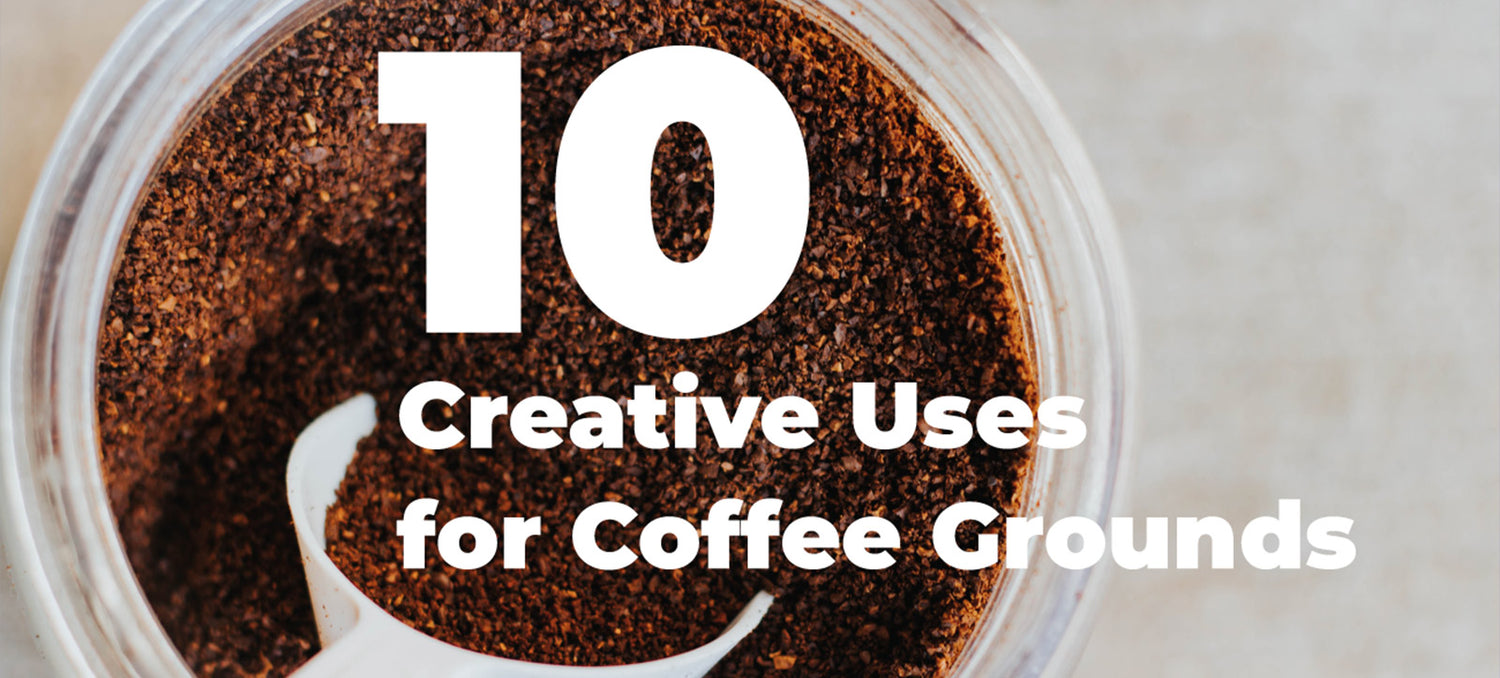Menopause can usher in symptoms that profoundly affect women's daily lives. However, emerging research suggests that functional mushrooms hold promise in alleviating some of these challenges. Reishi, Lion’s Mane, and Cordyceps boast rich concentrations of mycochemicals, aiding women in combatting fatigue, mood swings, and memory issues. Moreover, Chaga mushrooms, with their beta-glucans, offer a natural boost to immune defense.
For numerous women, midlife signifies a period of vitality, confidence, and activity. Regrettably, menopausal symptoms such as mood swings, cognitive fog, fatigue, and disrupted sleep patterns can impede this stride. [1,2] Addressing these concerns might be as straightforward as integrating minor dietary adjustments. Some women have discovered relief by integrating functional mushrooms into their daily routine, harnessing the benefits of these fungi's natural compounds. [3]
Cognitive Clarity: Lion's Mane Mushroom for Menopause
One of the most formidable aspects of aging is managing cognitive changes. Throughout and post-menopause, many women contend with "brain fog," memory lapses, and mood fluctuations. Research suggests these issues may be linked to declining hormone levels, including estrogen. [4,5,6]
Lion's Mane mushrooms contain mycochemical phytoestrogen, which mimics estrogen in the body. Studies indicate that perimenopausal women consuming Lion's Mane may sustain stable moods, possibly due to phytoestrogens binding to estrogen receptors in the brain. [6]
Additionally, Lion's Mane harbors erinacine A and hericenones C, mycochemicals that foster nerve cell growth. Recent animal studies demonstrate these compounds' potential in bolstering memory function in older subjects. [8,10]
Restful Nights: Reishi Mushroom for Menopause
Sleep disruptions are prevalent during menopause, with poor sleep quality linked to various health issues like weight gain, blood sugar imbalances, cardiovascular concerns, and mood fluctuations. [11]
Numerous animal studies have associated the mycochemicals in Reishi mushrooms with improved sleep quality. [12,13,14] Notably, one study observed a significant increase in total sleep time in mice after only three days of Reishi consumption. [14]
Another study suggested that Reishi's positive impact on sleep might be attributed to changes in the gut microbiome, with Reishi extract fostering the growth of beneficial gut bacteria that produce sleep-promoting chemicals. [13]
Reishi mushrooms are also recognized as adaptogens, aiding in regulating the body's stress responses and potentially enhancing sleep quality. Though the exact stress-relief mechanisms are not fully understood, Indian researchers propose that Reishi's flavonoids and phenols may play a role in reducing stress. [15,16]
Energy Boost: Cordyceps Mushroom for Menopause
As we age, maintaining energy levels becomes essential for sustaining exercise routines vital for weight management, bone health, and muscle retention. [17]
Cordyceps mushrooms can effectively supply the energy required for various cellular functions, including exercise, by containing mycochemicals that support adenosine triphosphate (ATP) production. [18,19]
Research indicates that Cordyceps can enhance exercise performance, with studies demonstrating improvements in high-intensity exercise performance following supplementation with Cordyceps extract. [18,20]
Strengthen Immunity: Chaga Mushroom for Menopause
Chaga mushrooms are celebrated for their immune-boosting prowess, primarily attributed to their high polysaccharide content. These intricate sugars effectively stimulate the immune system while curbing inflammation, making Chaga a valuable asset for bolstering overall health and defending against illnesses, including the dreaded "menopause flu."
Abundant in antioxidants, Chaga mushrooms safeguard the body against free radical damage and mitigate the risk of chronic ailments. [21] With some of the highest antioxidant levels among natural food sources, Chaga stands out as a vital addition to your menopause support regimen.
Chaga's benefits extend to regulating blood sugar levels, a critical consideration during menopause when hormonal fluctuations affect insulin sensitivity. Furthermore, Chaga may promote cardiovascular wellness by reducing cholesterol levels and enhancing circulation.
Emerging findings suggest that Chaga mushrooms could also enhance cognitive function, aiding memory and concentration. This potential boon is particularly valuable for individuals grappling with brain fog or cognitive shifts during menopause.
The Bottom Line
Although menopause symptoms can disrupt daily life, dietary adjustments, including the incorporation of functional mushrooms, may offer relief. Growing evidence supports the efficacy of mushrooms like Lion's Mane, Cordyceps, Reishi, and Chaga in addressing sleep, mood, memory, and energy levels. By integrating functional mushrooms into your diet, you can navigate menopause as the graceful transition it ought to be.
References
- Peacock, K., & Ketvertis, K. M. (2022). Menopause. In StatPearls. StatPearls Publishing.
- Sullivan Mitchell, E., & Fugate Woods, N. (2001). Midlife women’s attributions about perceived memory changes: observations from the Seattle Midlife Women's Health Study. Journal of Women’s Health & Gender-Based Medicine, 10(4), 351–362.
- Venturella, G., Ferraro, V., Cirlincione, F., & Gargano, M. L. (2021). Medicinal Mushrooms: Bioactive Compounds, Use, and Clinical Trials. International Journal of Molecular Sciences, 22(2). https://doi.org/10.3390/ijms22020634
- Conde, D. M., Verdade, R. C., Valadares, A. L. R., Mella, L. F. B., Pedro, A. O., & Costa-Paiva, L. (2021). Menopause and cognitive impairment: A narrative review of current knowledge. World Journal of Psychiatry, 11(8), 412–428.
- Sliwinski, J. R., Johnson, A. K., & Elkins, G. R. (2014). Memory Decline in Peri- and Post-menopausal Women: The Potential of Mind-Body Medicine to Improve Cognitive Performance. Integrative Medicine Insights, 9, 17–23.
- Anuar, A. M., Minami, A., Matsushita, H., Ogino, K., Fujita, K., Nakao, H., Kimura, S., Sabaratnam, V., Umehara, K., Kurebayashi, Y., Takahashi, T., Kanazawa, H., Wakatsuki, A., Suzuki, T., & Takeuchi, H. (2022). Ameliorating Effect of the Edible Mushroom Hericium erinaceus on Depressive-Like Behavior in Ovariectomized Rats. Biological & Pharmaceutical Bulletin, 45(10), 1438–1443.
- Desmawati, D., & Sulastri, D. (2019). Phytoestrogens and Their Health Effect. Open Access Macedonian Journal of Medical Sciences, 7(3), 495–499.
- Kawagishi, H., Ando, M., Sakamoto, H., Yoshida, S., Ojima, F., Ishiguro, Y., Ukai, N., & Furukawa, S. (1991). Hericenones C, D and E, stimulators of nerve growth factor (NGF)-synthesis, from the mushroom Hericium erinaceum. Tetrahedron Letters, 32(35), 4561–4564.
- Ratto, D., Corana, F., Mannucci, B., Priori, E. C., Cobelli, F., Roda, E., Ferrari, B., Occhinegro, A., Di Iorio, C., De Luca, F., Cesaroni, V., Girometta, C., Bottone, M. G., Savino, E., Kawagishi, H., & Rossi, P. (2019). Hericium erinaceus Improves Recognition Memory and Induces Hippocampal and Cerebellar Neurogenesis in Frail Mice during Aging. Nutrients, 11(4). https://doi.org/10.3390/nu11040715
- Lee, L.-Y., Chou, W., Chen, W.-P., Wang, M.-F., Chen, Y.-J., Chen, C.-C., & Tung, K.-C. (2021). Erinacine A-Enriched Hericium erinaceus Mycelium Delays Progression of Age-Related Cognitive Decline in Senescence Accelerated Mouse Prone 8 (SAMP8) Mice. Nutrients, 13(10). https://doi.org/10.3390/nu13103659
- Colten, H. R., Altevogt, B. M., & Institute of Medicine (US) Committee on Sleep Medicine and Research. (2006). Extent and Health Consequences of Chronic Sleep Loss and Sleep Disorders. National Academies Press (US).
- Chu, Q.-P., Wang, L.-E., Cui, X.-Y., Fu, H.-Z., Lin, Z.-B., Lin, S.-Q., & Zhang, Y.-H. (2007). Extract of Ganoderma lucidum potentiates pentobarbital-induced sleep via a GABAergic mechanism. Pharmacology, Biochemistry, and Behavior, 86(4), 693–698.
- Yao, C., Wang, Z., Jiang, H., Yan, R., Huang, Q., Wang, Y., Xie, H., Zou, Y., Yu, Y., & Lv, L. (2021). Ganoderma lucidum promotes sleep through a gut microbiota-dependent and serotonin-involved pathway in mice. Scientific Reports, 11(1), 13660.
- Cui, X.-Y., Cui, S.-Y., Zhang, J., Wang, Z.-J., Yu, B., Sheng, Z.-F., Zhang, X.-Q., & Zhang, Y.-H. (2012). Extract of Ganoderma lucidum prolongs sleep time in rats. Journal of Ethnopharmacology, 139(3), 796–800.
- Panossian, A. (2017). Understanding adaptogenic activity: specificity of the pharmacological action of adaptogens and other phytochemicals. Annals of the New York Academy of Sciences, 1401(1), 49–64.
- Singh, R., Dhingra, G. S., & Shri, R. (2016). Evaluation of Antianxiety Potential of Four Ganoderma (Agaricomycetes) Species from India in Mice. International Journal of Medicinal Mushrooms, 18(11), 991–998.
- Fitness tips for menopause: Why fitness counts. (2022, December 3). Mayo Clinic. https://www.mayoclinic.org/healthy-lifestyle/womens-health/in-depth/fitness-tips-for-menopause/art-20044602
- Das, G., Shin, H.-S., Leyva-Gómez, G., Prado-Audelo, M. L. D., Cortes, H., Singh, Y. D., Panda, M. K., Mishra, A. P., Nigam, M., Saklani, S., Chaturi, P. K., Martorell, M., Cruz-Martins, N., Sharma, V., Garg, N., Sharma, R., & Patra, J. K. (2020). Cordyceps spp.: A Review on Its Immune-Stimulatory and Other Biological Potentials. Frontiers in Pharmacology, 11, 602364.
- Dunn, J., & Grider, M. H. (2022). Physiology, Adenosine Triphosphate. In StatPearls. StatPearls Publishing.
- Yan, X.-F., Zhang, Z.-M., Yao, H.-Y., Guan, Y., Zhu, J.-P., Zhang, L.-H., Jia, Y.-L., & Wang, R.-W. (2013). Cardiovascular protection and antioxidant activity of the extracts from the mycelia of Cordyceps sinensis act partially via adenosine receptors. Phytotherapy Research: PTR, 27(11), 1597–1604.
-
Science Direct. The role of edible mushrooms in health: Evaluation of the evidence https://www.sciencedirect.com/science/article/abs/pii/S175646461200074







